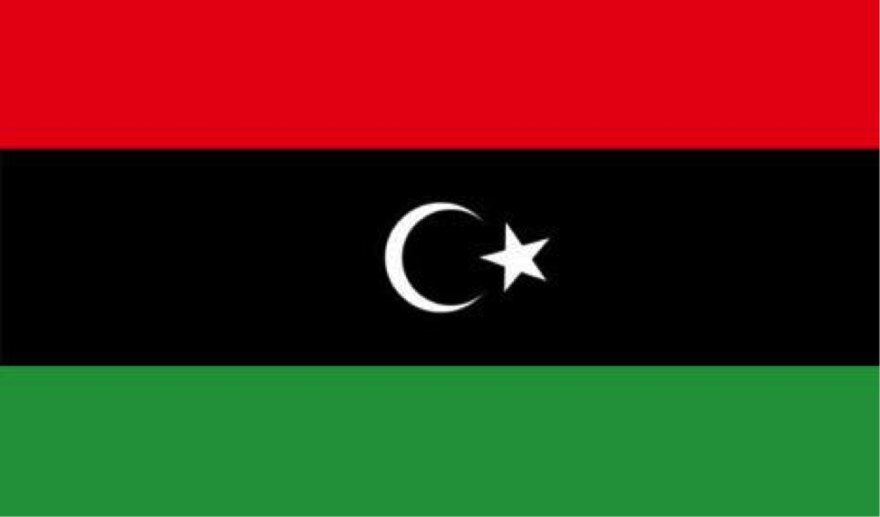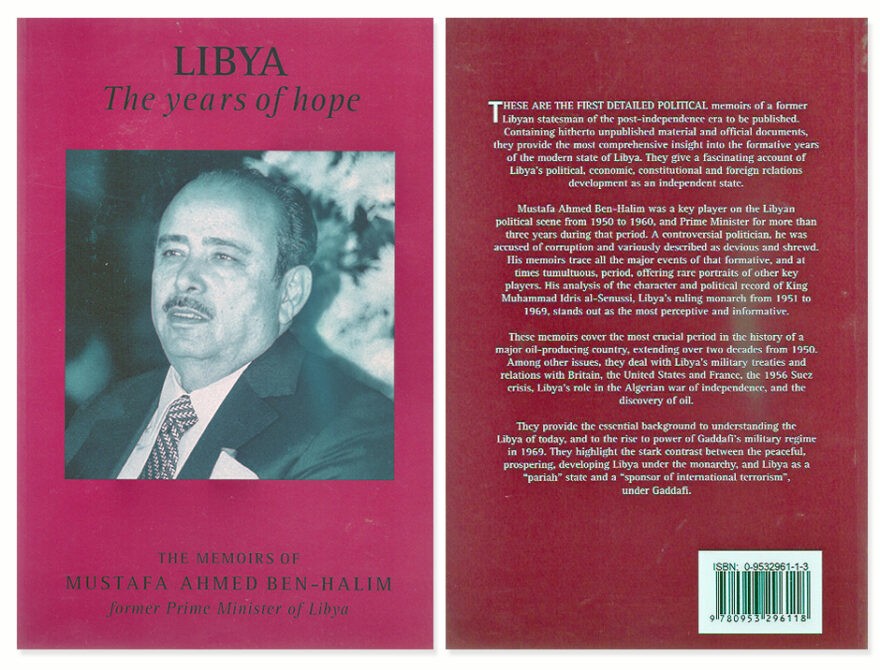Revolution! Catching up with an excited group of Libyan demonstrators in London, they were burning a couple of Green books outside Downing Street. The wild crowd also set aflame the green flag and replaced it by the old one of the monarchy. Last of their grand gestures, they hung and beat a padded doll representing Gaddafi with a symbolic heavy stick.
Hundreds of Libyans, mostly expats, began to sing the old anthem of the nation and chanted: “Tell Moammer and his sons, that there are men in Libya. Tell his daughter Aicha that we don’t want him anymore. Libya, Libya, Libya, the free. We are united brothers, from Benghazi and Tripoli. The people want the end of this regime.”
Afraid for the future, and worried about the escalating violent means that Gaddafi is resorting to quell dissent, this is what some of them had to say. A few agreed to give their full names but others not.
Sara, 38 said: “I now light a candle each night to give me hope, that the massacres in Tripoli will stop. My brothers (some as young as 14 and 20) and sisters of Benghazi have shown us that they are brave and are leading the way against Gaddafi’s madness. I pray that my elderly parents are safe, who are alone and vulnerable.
“Blood in the hospitals is thrown away, so that protestors die, and they hide the bodies so we cannot show the world media, but the fleeing of his daughter and his daughter in law makes me believe, that we will capture him and hang him soon. It has been a long 42 years of darkness and sadness, hoping and praying that there will be light soon.”
Tasnim Ben Sueied, 27 said: “A great thing that the revolution is in progress, because the Libyan people have been suffering under the hands of this oppressor. However, it is difficult to comprehend and I’m shocked at the silence of the world.”
Jalal Shammam, 46 said: “The future is bright for Libya. We have stood up, once and for all, with one voice to get rid of Gaddafi. My sympathy to the mothers, fathers, sisters and brothers of those who have lost their lives.”
Mohamed Mohsin Gheryani, 36 said: “I am feeling great. Libyans are surrounded with each other, on one ground.”
Ingi Soufraki, 49 said: “I want to go home to visit my mother’s grave. My last visit to Libya was in 1978.”
Hulya Soufraki, 47 said: “Stop the condemnation [international community] and start the action against Gaddafi. We want to try him and then he has to be pulled limb by limb.”
Naziha, 32, who is half Libyan and half English, said: “It is really scary but exciting times to be a Libyan. We’re talking to our families and they are ridiculously scared. It is upsetting to be here and frustrating not to be able to do anything. Phones get dead. We’re watching TV. Because of the violence in Tripoli, they cannot leave their homes. There is little food and no water. The UN Security Council has so far given us a lame response. Libyans though want to do this on their own and anew world awaits for them. Sad and horrible that the bloodshed has had to happen.”
Asma Maguz, 40 said: “I’ve been asked by the press about the oil pipes and oil prices. I’ve never seen anything from Libya’s export profits. We just want him out. Then they asked me how did we, as a Libyan nation, let him rule us for 42 years? It has been three generations now. Was it his money? The ability to brainwash us? No, he found a very simple society in Libya, and in particular in Tripoli. We’re a peaceful and forgiving people, almost passive. Even up until recently, they were ready to believe in his son Saif. But he just threatened and so now, people don’t care. They’re not scared. They have seen the worst, including rapes and killings. He and his family need to be caught and brought to justice.”
Fatima Ahdash, 19 said: “I have mixed feelings. Devastated by the genocide. The first time Libyans can speak up in their country. I am very hopeful that he will step down. It has been 42 years. Enough!”
Rami, 24, and born in the UK: “I am proud and ashamed at the same time. The shame is it took this long and we’ve had to reach the lowest point. But inshallah, he will go. I am looking forward to visiting Libya and to not see his face on the billboards the minute after getting off the plane.”
Laman, 67: “Why are they saying false things? This is a nationalist movement of the Libyan people. It has nothing to do with Al-Qaeda, nothing to do with the Taliban, nor Bin Laden. 42 years of him. Never in my life have I seen someone do this to his own people. America is not involved.”
Marwa, 18 and Noura Elgiathis, 17 said: “We want Gaddafi to die. It is the end. Libyans are speaking out: Libya! Libya! It is so great to be able to shout its name and not be afraid. They want to put him in his Green Square and hang him. Let them torture and execute him. This is the beginning of the end.”
Mohammed Zeiani, 22 said: “We need to get together as Libyans. Please ask everyone to help send money and medical aid to our people. They are going through Egypt and Tunisia. Support us please.”
Hawri Ahmed, from Kurdestan, said: “I am not Libyan but I have friends. We’re here to see that Gaddafi is worse than Saddam. It is time for democracy in Libya.”
Osama Alzuwai, 32 said: “I left in 1997. Gaddafi has put us in prison in Benghazi. He tortured us because we refuse to be under his regime and his committees. I ask all of my family in Kufra, in Jdabia and all the people in the desert to send their own to Gaddafi. We just do not want him in power any more. My hopes are for change. From dictatorship to a democratic country and we can be free to say what we want and what we don’t want. For freedom and our basic human rights.”
If you would like to add to this thread, please send an email through the Nahla Ink letter form



